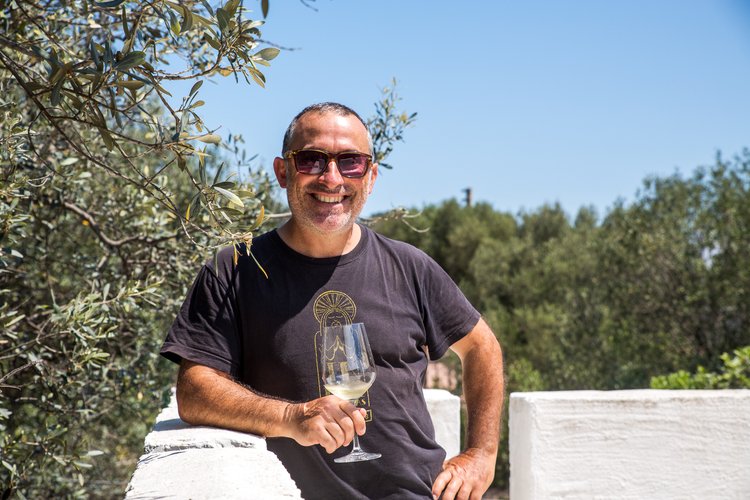Travel Guide to Inverness, Scotland - the Gateway to the Highlands
Affiliate disclosure: some of the links in this article are affiliate links. If you book using one of them, we’ll earn a small commission. All of our info is free to read and free of ads, so we appreciate it!
Inverness is one of Scotland’s most enticing cities and a great deal of its allure stems from the fact that it is the gateway to and chief settlement in one of Europe’s most remote, pristine and captivating regions: the Scottish Highlands.
This proximity to such a stunning natural area ensures that huge volumes of tourists pass through the city, but many of these visitors end up lingering longer, waylaid by the city’s inviting layout, its dynamic cafés and restaurants, its picturesque green spaces and its proximity to an array of stellar attractions.
Scotland’s northernmost mainland city (three hours and 160 miles north of Edinburgh and Glasgow), Inverness benefits from exquisite nearby scenery. The nation’s most famous loch or lake, Loch Ness (and its resident monster Nessie) is a few miles away and the countryside around Inverness quickly erupts into steep wooded glens and tranquil shoreline along the Moray Firth estuary.
You’ll want to partake of Inverness’ dynamic cultural scene (because believe me, in the isolated Scottish Highlands you may not get another opportunity to go to the theater, an atmospheric live music venue, or trendy bar).
But you’ll also want to take some of the terrific day trips – out to Culloden, the battle site where hopes of a Scottish monarch on the Scottish throne were lost for good, or to fairy-tale castles like Cawdor or Urquhart.
Table of Contents
Local help with your planning
If you’re planning a visit to Edinburgh, or Scotland more broadly, and could use some help coming up with a great plan, consider scheduling a Scotland travel consultation with Chris, our Local Expert in the United Kingdom.
These are one-hour Zoom calls where you get to chat with Chris, a local guide and tour leader throughout Scotland and the United Kingdom, about the trip you’re planning and get his expert tips and advice, answers to your travel questions, and help you perfect your itinerary.
Why visit?
There is a reason why Inverness is not just a big hit with tourists but also with locals: this is a city that has scored very highly in quality of life indices and has been one of the fastest-growing cities in the UK over the last 20 years.
For me, the secret to the city’s success is that it is compact and close to dazzling green spaces yet contains facilities equivalent to a much-larger city.
There are not too many places in the UK where in a short walk you can take in a buzzing bar and restaurant scene, see an art museum, a castle and a cathedral and afterwards enjoy serene riverside walks to islands that perfectly lend themselves towards picnicking.
In addition, of course, there is the reason everyone visits: this is the major transport hub for the whole of the Scottish Highlands, and is the place to arrange tours from Loch Ness cruises to Isle of Skye visits. It has all the tools you need here to plan the Highlands adventure that you will likely take after leaving. Yet for all its logistical benefits, it’s a destination to enjoy in its own right, too.
Where is Inverness?
Inverness is 156 miles north of Edinburgh, 168 miles north of Glasgow and 103 miles northwest of Aberdeen. It’s 560 miles northwest of London in England.
Traveling north from Inverness, it is 111 miles to reach the northern coast of the British mainland at Thurso, and traveling southwest, it is 80 miles to Scotland’s west coast at Kyle of Lochalsh (gateway to the Isle of Skye).
If you look at a map of Scotland, the great divide of lochs that almost severs the northwest third of the nation off from the other two thirds to the south, the Great Glen, is the line on which the city sits. Inverness is located at the northeast end of the Great Glen on the shore of the deep Moray Firth estuary.
How to get here
The main way of getting to Inverness is by flight to Inverness Airport, and this is the best and quickest option if you are coming from destinations in England.
The other main transport hubs to launch a trip to Inverness from are Glasgow and Edinburgh. Glasgow and Edinburgh both have good train connections to Inverness; Glasgow also has bus connections.
By flight to Inverness Airport
Inverness Airport is 9 miles northeast of the city centre on the Moray First coastline. It receives daily flights internationally from Amsterdam, as well as from Bristol, Manchester and Belfast. There are also many direct daily flights from London airports Gatwick, Heathrow and Luton. London to Inverness flight time is 1 hour 20 minutes and one-way fares are in the $30-100 range depending how much in advance you buy the ticket.
There are also more local flights between Inverness and Stornoway on the Outer Hebrides and Sumburgh on the Shetland Islands.
By train or bus from Glasgow
Glasgow is Scotland’s major transportation hub for travel to Inverness – with good train and bus connections. From Glasgow Queen Street, trains run between every 30 minutes to every hour. Journey time is 3 hours 15 minutes; ticket prices are about $65.
You can easily get to Inverness by bus from Glasgow too. Most buses run with Citylink, while long-distance bus companies like Megabus also have buses. Hourly Citylink buses via Stirling and Perth take 3.5 hours to Inverness, with ticket prices about $30.
By train from Edinburgh
From Edinburgh Waverley trains take between 3.5 and four hours, sometimes direct and sometimes with a change at Perth, to Inverness. Trains run about hourly, and ticket prices are about $65.
By train from London
London in Southern England is, as the major hub for travelers flying into the UK from overseas, also a possible base for beginning a trip to Inverness. There is one direct train service from London Kings Cross with the journey time eight hours and prices around $120. Other trains run via Edinburgh Waverley for a similar fee but an 8.5-hour journey time.
You can also take a long-distance bus from London to Inverness. Services take 13-15 hours and run with a change at Glasgow Buchanan Street: most are overnight services or entail long waits in the small hours at Glasgow. Ticket costs are $40-65.
By car
Inverness is around three hours and 156 miles north of Edinburgh (via Aviemore, on the A9 road).

Connect with Scotland travel expert Chris for help perfecting your itinerary, answers to all your travel questions, and fabulous local tips for a better visit!
Best time to visit
Peak season: July and August
July and August is peak season for visiting Inverness and the Scottish Highlands. This is when most tourists visit – during school summer holidays – and when major festivals like the Inverness Highland Games (July; one of the largest of Scotland’s summer games-based festivals, where participants face off in a number of contests such as tugs-of-war) and Black Isle Show (the largest agricultural show in Northern Scotland; early August) take place.
While average high temperatures during this time are the year’s highest at 64-67°F, this can often still seem very cool to visitors from elsewhere in the world. Expect 9-10 days of rain on average in either month. Accommodation fills up fast in the city in high season.
Shoulder season: April to June and September
Traveling at this time of the year has many advantages. The weather is very often at least as good as anything in July and August, and it’s less rainy than August on average between April and June. This makes the ground for hiking in the Highlands that surround Inverness drier.
Best of all, the trails and beauty spots are far less busy because less people visit the region at these times. There is still plenty of buzz to the festival calendar during all these months, with The Gathering, one of Highland Scotland’s biggest music festivals, one of the headline events.
Low season: October to April
The coldest, greyest, wettest time of the year is not the ideal season for visiting Inverness. Average temperature highs between November and March are 46°F or less.
Nevertheless, in the city itself there’s a buoyant entertainment scene that reaches its zenith at Hogmanay (New Year) and keeps things lively, some autumn and early spring days can be truly gorgeous sunshine (if chilly), and paths to destinations like the Ness Islands are well-surfaced, meaning you’ll still be able to get out and about.
How long to spend
While you can see the best of Inverness itself in a weekend (2 days), the number of tempting day trips within very easy reach of the city means that if you want to really experience Inverness and its vicinity in depth, you’ll require 2-4 days.
2 Days: for the city highlights and a day trip
Day 1
Begin with an exploration of Inverness Old Town (the city center) on your first morning. Check out the views from the castle, check out Scotland’s biggest secondhand bookshop Leakey’s and explore Inverness Museum and Art Gallery.
Then consider getting some picnic items for a walk across the River Ness and the west side of the river. Take in the cathedral, and stroll along the comely banks of the Ness to the leafy and peaceful Ness Islands, connected by bridges, before returning along the east side of the river.
Dine tonight at one of Inverness’ standout restaurants, like Mustard Seed.
Day 2
Use today to explore Loch Ness. You could start with a pleasant walk along the River Ness and the Caledonian Canal to Dolgarroch Lochs, before then taking a boat trip on the loch that will include a sight of bewitching Urquhart Castle.
This afternoon, you could try a different watersport with some canoeing or paddleboarding – either on the Caledonian Canal or at Aigas Gorge with an agency like Explore Highlands.
3-4 Days: for a slower pace and more of the surrounding area
As well of all of the 2-day itinerary above, you could also factor in some uforgettable day trips with this amount of extra time.
Day 3
Head out to the Culloden Battle Site to find out all about one of the most important days in Scottish history – when the Jacobite cause to put a Scottish monarch on the throne of Scotland was forever lost, following a defeat by government troops.
Take in the walk to pretty Clava Cairns, 4000 year-old burial chambers, and in the afternoon consider a trip to either Fort George, one of the finest military fortifications ever built, or enchanting Cawdor Castle.
Day 4
Use today to go dolphin-watching on the Moray Firth. You could go on a boat trip or go to Merkinch Nature Reserve and spot the cetaceans from land. A boat trip allows for sightings of other sea creatures, like seals. Combine this with a walk around the beautiful steep-sided woods of Reelig Glen afterwards.
End today in style listening to some of Inverness’ legendary live traditional music at a venue like Hootananny in the city center, or take in a theater performance at Eden Court Theatre.
Where to stay
Inverness is not large enough to have different districts or neighborhoods really, and there is only one area of the city in which to stay: the city center. This flanks both sides of the River Ness around Inverness Cathedral for several blocks.
The east bank is also known as the ‘Old Town’ and is busier and has most restaurants, bars and shops; the west bank is more residential and thus has lots of accommodation, but also attractions like Inverness Cathedral and Eden Court Theatre.
Distances are so small in this condensed city, however, that to divide it into different districts for accommodation purposes doesn’t make sense. Below are some of the accommodation options that I particularly like:
Glen Mhor Hotel
This is one of Inverness’ best central options for a stay. On the east bank of the River Ness, this is a smart mix of hotel rooms and a apartments, with a bar and a restaurant too.
Rossmount Guest House
This is a handsome 5-room 1870-built guesthouse in the city center on the east side of the river, with lots of period features.
The Boat and Breakfast
For something a little different, try this quirky accommodation out by Inverness Marina, one mile northwest of Ness Bridge. There are four cosy cabins, and having breakfast aboard ship in the morning is a special experience.
Castle View Guest House
This popular guesthouse is just across Ness Bridge on the west bank of the River Ness, with pretty views to Inverness Castle.
Black Isle Hostel
A spick-and-span centrally located and recent addition to the budget accommodation scene in Inverness, this hostel has well-maintained dorms and is a short walk from the Black Isle bar, which brews its own beer. It’s on the east side of the River Ness.

What to see & do
1. Stroll along the River Ness to the Ness Islands
The single most beautiful thing to do in Inverness is to walk out alongside the River Ness from the city center to the Ness Islands, a cluster of verdant river island idylls connected by footbridges to the banks.
It’s around a 3-mile circuit from central Inverness, heading via the two main islands and back along the other bank via Bught Park.
2. Learn about Highlands history at Inverness Museum & Art Gallery
Inverness and its Highland surroundings have enjoyed a fascinating history and this is the address at which to find out all about it. The modern museum, refurbished in 2007, takes you on a colorful romp through the past from prehistoric sites through to traditional Highland and Jacobite weapons and musical instruments.
Some of the collection dates back to the 1820s. An art gallery presents a range of changing exhibitions, and there is a café too. Allow a couple of hours to visit.
3. Visit Inverness’ historic sights
Inverness has some interesting historic buildings worth checking out. On the west side of the River Ness, the UK’s most northerly Anglican cathedral, is one of the finest works of architect Alexander Ross, who designed much of the original cityscape of Inverness.
Dating from 1867, its ruddy pink double-towered exterior is a defining part of the Inverness skyline, and it’s well worth a half-hour look inside. Meanwhile Inverness Castle, on the east side of the river, makes a great viewpoint for looking out over the city.
Inverness Castle. Photo: Diliff, CC BY-SA 3.0, via Wikimedia Commons
4. Browse one of Scotland’s biggest secondhand bookshops at Leakey’s
Housed in a former church, Inverness institution Leakey’s has amassed over 100,000 second-hand books on every topic under the sun since first opening in 1979 and is a pilgrimage for bookworms from across the world.
You’re guaranteed to find something of interest and I have also found it a very useful and enjoyable way to dodge the rain for a few hours!
5. Enjoy Inverness’ lively nightlife
By nature of its huge importance to such a large region and despite being fairly compact, Inverness has a great deal to offer and this is never more evidenced than when wandering its streets for an evening.
Live music venues like Gellions and Hootananny with their superb nightly showcases of traditional Scottish folk, traditional pubs like the Castle Tavern and the Highlands’ biggest entertainment venue, Eden Court, with its diverse program of cinema and theater headline a buzzing nightlife scene.
Get an entertainment fix while you can before you head off into the remoter highlands, where such things are rarely available.
6. Go dolphin-watching in the Moray Firth
The Moray Firth, the estuary forming the Inverness shoreline, is one of the best places in the UK – if not Europe – to go dolphin-watching. Waters here contain one of the UK’s biggest bottlenose dolphin populations.
Two-hour trips with Dolphin Spirit Boat Trips depart from Inverness Marina daily between March and October: you might spot the dolphins, plus seals, porpoises and many seabirds, though sightings are not guaranteed.
Inverness also has a free dolphin-watching spot: the tip of the Merkinch Nature Reserve, from where the creatures are sighted regularly.
Photo: Shirehorse at the English Wikipedia, CC BY-SA 3.0, via Wikimedia Commons
7. See the mighty trees of Reelig Glen
A short distance from Inverness, you can be transported to an arboreal wonderland where some of Great Britain’s tallest trees await on the easy yet dramatic paths of Reelig Glen. Find the glen 9 miles west of the city center, off the A862 road south of Drumchardine.
The two short woodland circuit walks are 2.25 miles total, making this an enjoyable half-day trip. If you’re planning on doing just one walk as a day trip from the city, I recommend that you make Reelig Glen the one.
8. Walk or cycle the Caledonian Canal
The Caledonian Canal is one of Scotland’s finest 19th-century works of engineering. Utilising the extensive lochs along the Great Glen, most famously including Loch Ness, it connects Scotland’s west coast at Corpach near Fort William with Inverness. Thomas Telford completed the canal in 1822.
With towpaths along its length, it is a scenic way to walk or cycle from Inverness to the edge of Loch Ness. The 5-mile stretch from the city center to Dolgarroch Locks is the loveliest. For the final section to Loch Ness, the canal enters Loch Dochfour and most of the way is along the busy A862.
With some refreshments at Dolgarroch Lochs café, this makes a lovely half-day (cycling) or full-day (walking) activity.
The Neptune’s Staircase section of the canal. Photo: aeroid, CC BY-SA 3.0, via Wikimedia Commons. Cropped from original
9. Canoe or paddleboard the waters around Inverness
Inverness is surrounded by enticing stretches of water, from the Caledonian Canal to the Aigas Gorge and the Inner Moray Firth. These can be explored by canoe or paddleboard on guided half or full-day adventures. Agencies like Explore Highlands run these trips regularly.
10. Take a boat trip to Loch Ness and Urquhart Castle
The international fame of Loch Ness and its mythical monster, ‘Nessie’, draws thousands of tourists into taking a boat trip on its deep, dark waters. While a Loch Ness voyage may be one of the most popular activities anywhere in Scotland, there is good reason to go: some stunning scenery, including the loch’s forest-rimmed shores and fairytale 13th-century fortress ruin, Urquhart Castle, is on offer.
The excursion from Dolgarroch Lock 5 miles outside Inverness to Loch Ness with cruise company Loch Ness by Jacobite takes two hours. If you prefer to see these places by land, the A862 road also runs along Loch Ness’ north shore to Urquhart Castle on the way to Fort William.
11. See the Culloden Battle Site
The poignant battle site of Culloden, 5.5 miles east of Inverness, marks the darkest day in Scottish history. On April 16th 1746, pretender to the Scottish throne Bonnie Prince Charlie and his Jacobite army were soundly defeated by government forces at this spot – ending forever the hope of a Scottish monarch ruling Scotland.
There is a visitor center that uses various installations to place visitors in the thick of the action of the battle, several memorials to the fallen, a wide expanse of moorland and lots and lots of tourists. Combine the site with the peaceful Clava Cairns nearby for an interesting half-day trip.
12. Uncover four millennia of history at Clava Cairns
Near Culloden Battle Site awaits another far-more ancient attraction that few people bother visiting. The Clava Cairns are a trio of Bronze Age chambered cairns – prehistoric burial sites – that stand in a woodland clearing 1.5 miles southeast of Culloden (from where you could walk and bring a picnic) and 6.75 miles southeast of Inverness.
Combined with a visit to the Culloden Battle Site, this is at least a half-day trip from the city center.

Connect with Scotland travel expert Chris for help perfecting your itinerary, answers to all your travel questions, and fabulous local tips for a better visit!
13. Wander a fairy-tale fortress at Cawdor Castle
Cawdor Castle was given a big helping hand towards its popularity as an attraction by Shakespeare: in the bard’s play Macbeth, the scheming protagonist was Thane of Cawdor. Though this fortress was raised several centuries after the real Scottish king Macbeth, Cawdor Castle remains a romantic spot.
It’s built around a 15th-century tower house, and for several centuries has been the home of storied Scottish clan (notable family) the Campbells. There are many period-furnished rooms to roam inside and the castle gardens are stunningly beautiful too. It’s 14 miles northeast of Inverness: allow at least half a day to visit.
Photo: Holger Uwe Schmitt, CC BY-SA 4.0, via Wikimedia Commons
14. Admire the formidable fortifications at Fort George
Fort George, 12 miles northeast of Inverness beyond Inverness Airport, is considered by many to have the most perfect defensive structure of any fort in the world.
The well-preserved 18th-century fortification, built for security after the Jacobite Uprisings, boasts over a mile of bulky walls and deep ditches, and perches on a headland sticking out into the Moray Firth. Make this a half-day trip.
An aerial view over Fort George. Photo: Stephen Branley / Fort George / CC BY-SA 2.0
Restaurants and dining
Inverness doesn’t boast Michelin stars like bigger Scottish cities Edinburgh and Glasgow can, but as the main travel hub for all the vast Highlands region, it is well used to catering for travelers and does so with a diverse array of eating options.
There are several excellent places showcasing the finest in Scottish cuisine with various twists, and lots of cafes for sheltering from the notoriously wet Highland weather.
The bar and live music scene is excellent here too. Most places to eat are in the ‘Old Town’ – the city center, around the cathedral and along the nearby stretch of river.
Here are a few restaurants that I always make a point of visiting when I’m in the city:
Mustard Seed: A long-time favorite in Inverness, located in a former church, the Mustard Seed serves uncomplicated but delicious Scottish dishes with Mediterranean and other worldly influences: Cullen skink fishcakes with tzatziki sauce, for example, or steak and grilled haggis with broccoli florets and chasseur sauce.
Contrast Brasserie: This pan-Asian restaurant is one of the city’s very best. It showcases Scottish ingredients, like wild venison or hand-dived Hebridean scallops, and gives them charismatic Asian twists which could entail adobo sauce from the Phillipines, or mango teriyaki from Japan.
River House Restaurant: On the west bank of the River Ness, this stylish contemporary restaurant serves the best array of seafood in Inverness. There are oyster and mussel menus, while other fishy treats include Shetland halibut and a house fish stew tanked with scallops, clams, prawns and topped with red mullet.
Café Artysans: This café near the bus station features a long list of local and regional suppliers on its straightforward but enticing menu, and serves good coffee and homemade cakes.
Scotch & Rye: Scotch & Rye is a 1920s speakeasy-style joint that specializes in great cocktails and food that hits the spot somewhere between diner and Scottish upmarket pub in style: Louisiana-style chicken strips, quesadillas, falafel bites and haggis popcorn.
























